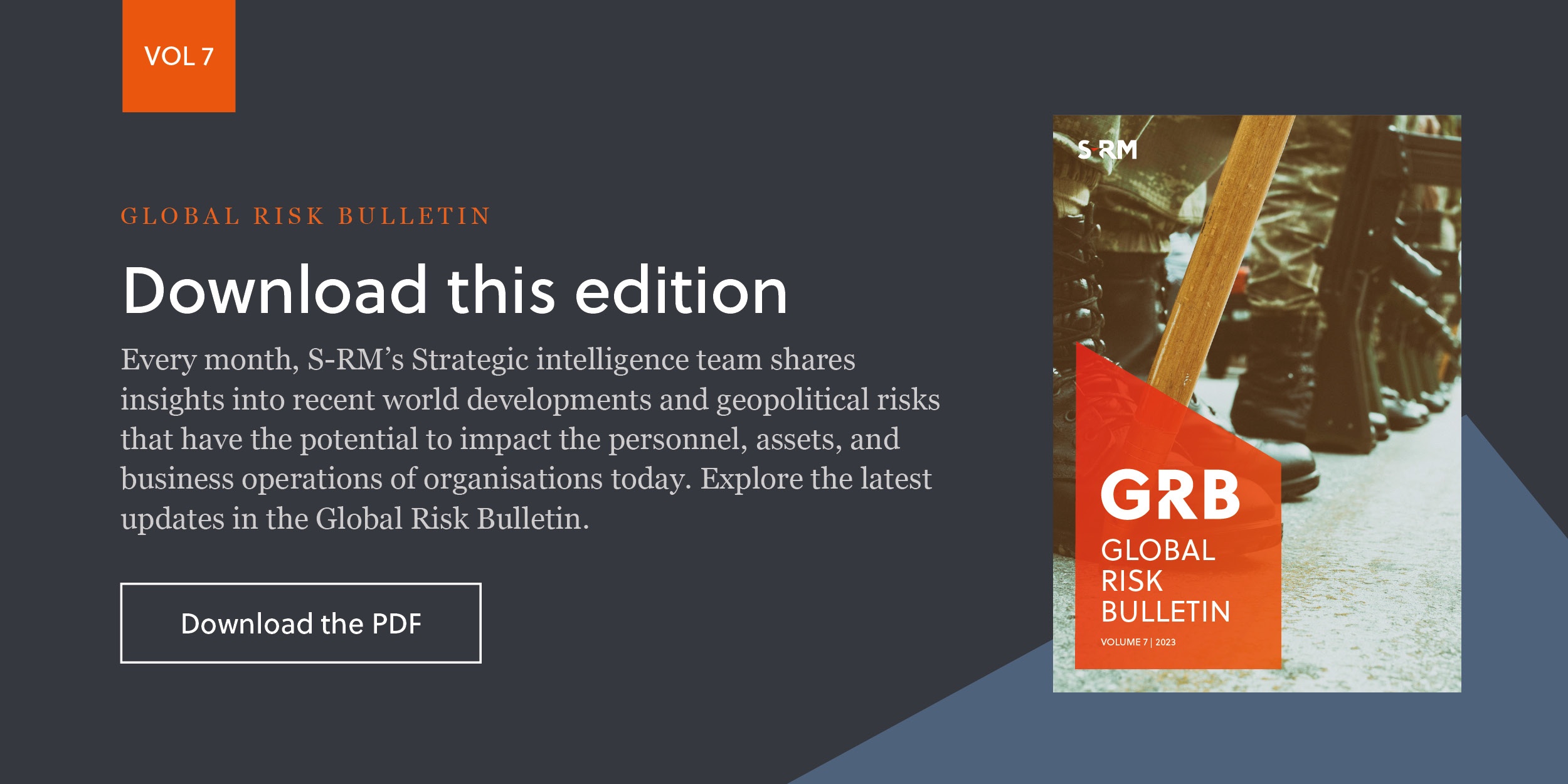In this edition of the Global Risk Bulletin, we explore the domestic, regional and international implications of the July coup in Niger; discuss the ongoing challenges of high crime rates in Ecuador, including the potential impacts it may will have on the country’s governance; and weigh up the prospects for lasting peace in Colombia following the August ceasefire between the government and the Ejército de Liberación Nacional (ELN) militant group.
Niger
A coup too many: The implications of the Nigerien putsch
The overthrow of the government on 26 July in Niger marked the sixth coup in West Africa since 2020. There are arguably more profound regional and global implications to the Niger coup than there have been for recent coups in Guinea, Mali and Burkina Faso, and several questions remain about the role ECOWAS has in promoting stability within the regional bloc, and for the prospects for emboldened Islamist militancy across the Sahel. Read the article
Ecuador
Silver or lead: The challenges confronting Ecuador’s next administration
The assassination of presidential candidate Fernando Villavicencio in early August was the latest act in a string of political killings and attacks in Ecuador over the past two years. Successive governments have either been unsuccessful or unwilling to find meaningful solutions to curbing rampant crime and the growing power of organised criminal groups, likely leading to further deterioration in the country’s security environment at least over the next twelve months. Read the article
Colombia
Going through the motions: Will Colombia’s largest remaining rebel group commit to lasting peace?
A six-month truce between the national government and the Ejército de Liberación Nacional (ELN) signed in August is a positive development, precedent set by collapsed agreements in the past suggests lasting peace still remains elusive. Challenges remain over the ELN’s demands in a permanent peace deal, and the willingness of the Colombian government to grant them, so the potential breakdown of the truce remains a distinct possibility. Read the article





